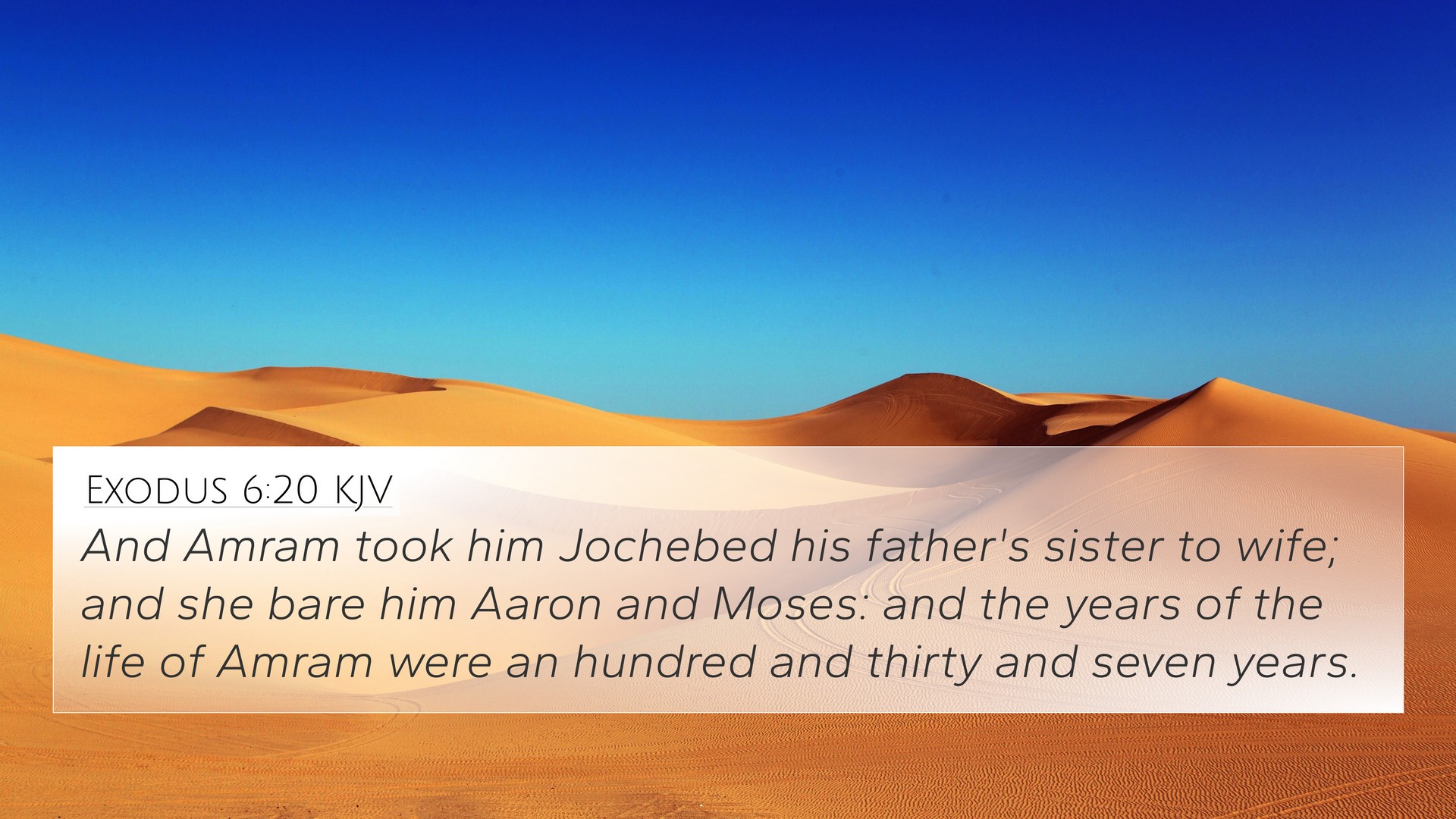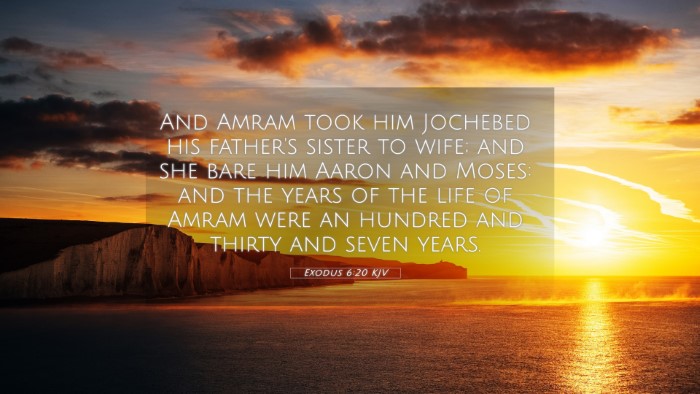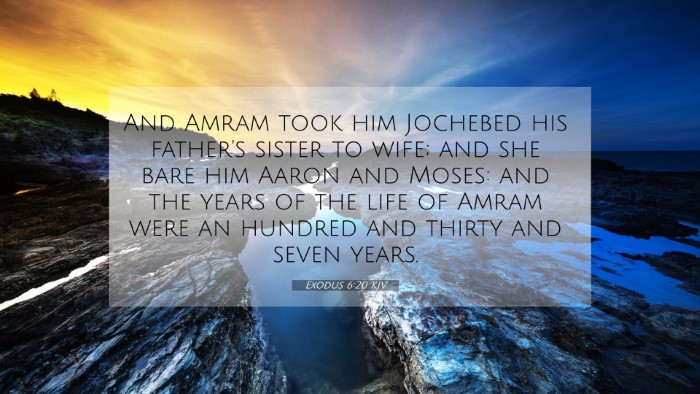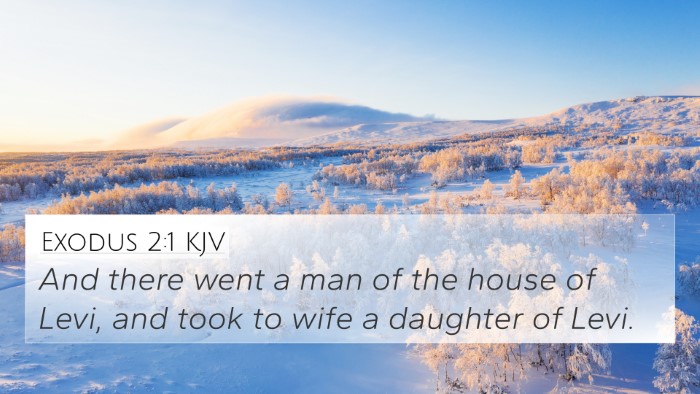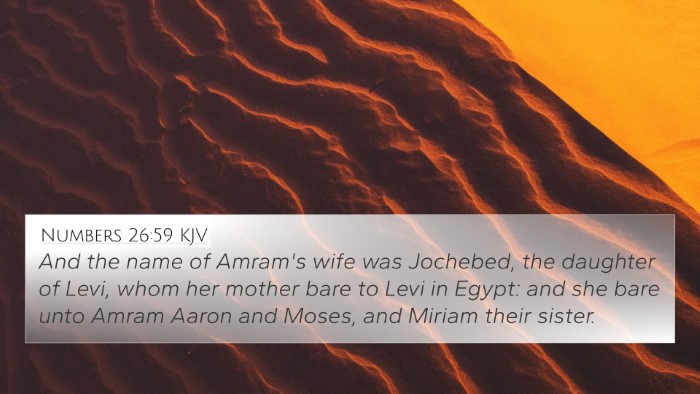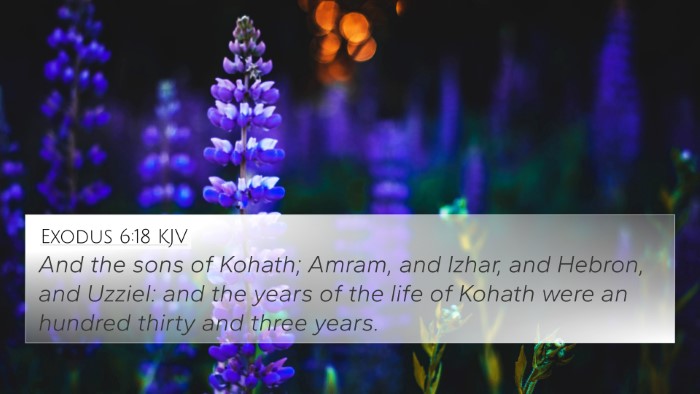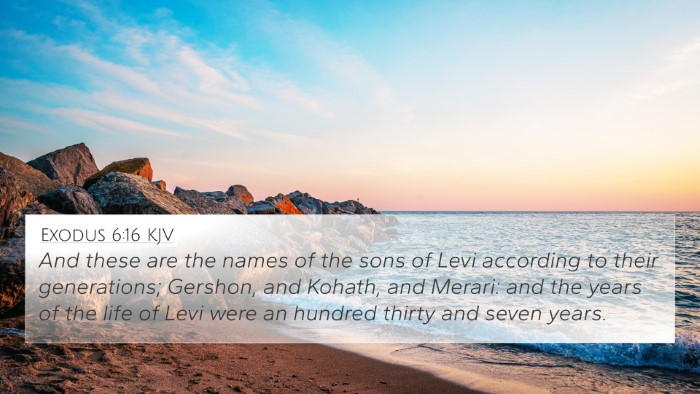Understanding Exodus 6:20 - Insights from Public Domain Commentaries
Verse Reference: Exodus 6:20 - "And Amram took him Jochebed his father's sister to wife; and she bare him Aaron and Moses: and the years of the life of Amram were an hundred and thirty and seven years."
Summary of Meaning
This verse provides an essential genealogical detail regarding the lineage of Moses and Aaron within the context of the Exodus narrative. The significance of Amram marrying his aunt Jochebed and their role in the Hebrew ancestry illustrates God's unfolding plan for the deliverance of Israel from Egyptian bondage.
Key Insights from Commentaries
-
Matthew Henry:
Henry emphasizes the importance of family connections and the divine sovereignty seen in the lineage of Moses and Aaron. The relationship between Amram and Jochebed highlights God's providential selection of leaders for His people. Their offspring are central to the narrative of salvation, as Moses becomes the instrument of deliverance.
-
Albert Barnes:
Barnes notes that the mention of Amram and his family is crucial for establishing the credentials of Moses and Aaron. He discusses the implications of such familial ties in the broader context of Israel’s history, indicating that God often works through familial and community relationships to fulfill His purposes.
-
Adam Clarke:
Clarke analyzes the significance of Amram’s and Jochebed's lineage, pointing to the cultural practices of the time regarding marriage within familial ties. He suggests that despite the unusual nature of this marriage, it fulfills a divine scheme for the execution of God's plan. Their longevity signifies the blessings of God, demonstrating how He orchestrates history through specific families.
Thematic Connections and Cross-References
Exodus 6:20 is not only foundational to understanding Moses and Aaron's heritage, but it also establishes thematic links across the Bible. Below are key cross-references that illuminate the text:
- Genesis 46:11: This verse provides details about Levi's descendants, establishing the family context from which Moses and Aaron emerge.
- Exodus 2:1-10: This passage recounts the birth and preservation of Moses, linking his story to God’s providence in safeguarding His chosen leader.
- Exodus 12:51: The fulfillment of God’s promise to Israel can be traced back to the lineage of Moses, underlining the importance of this familial connection.
- Numbers 26:59: This verse confirms the genealogy of Moses and Aaron, emphasizing the continuity of their lineage as critical figures in Israel's history.
- Hebrews 11:23: The faith of Amram and Jochebed in preserving Moses, despite peril, shows a remarkable example of faithfulness in God’s plans.
- Luke 3:23-38: The genealogy of Jesus connects to the broader narrative of God’s plan, positioning Moses' lineage within the messianic promise.
- Acts 7:20-22: Stephen recaps the birth of Moses, reinforcing the historical significance of the Exodus account and the importance of Moses as a leader.
Application: Tools for Cross-Referencing
Utilizing a comprehensive Bible concordance or a Bible cross-reference guide can enhance your study, allowing for:
- Thematic Bible verse connections
- Comparative Bible verse analysis, identifying how Moses's lineage contributes to the understanding of God’s deliverance
- Effective sermon preparation facilitated by Bible cross-references for sermon preparation
- Interpreting Biblical themes through cross-references, particularly regarding the roles of leadership and family
Conclusion
Exodus 6:20 is a pivotal verse in understanding the context of Moses' and Aaron's roles in the Israelite exodus narrative. By exploring genealogical connections and utilizing various cross-referencing methods, one can unveil deeper insights into how God orchestrates His plans through specific lineages and appointed leaders, aligning with His greater purpose of redemption.
